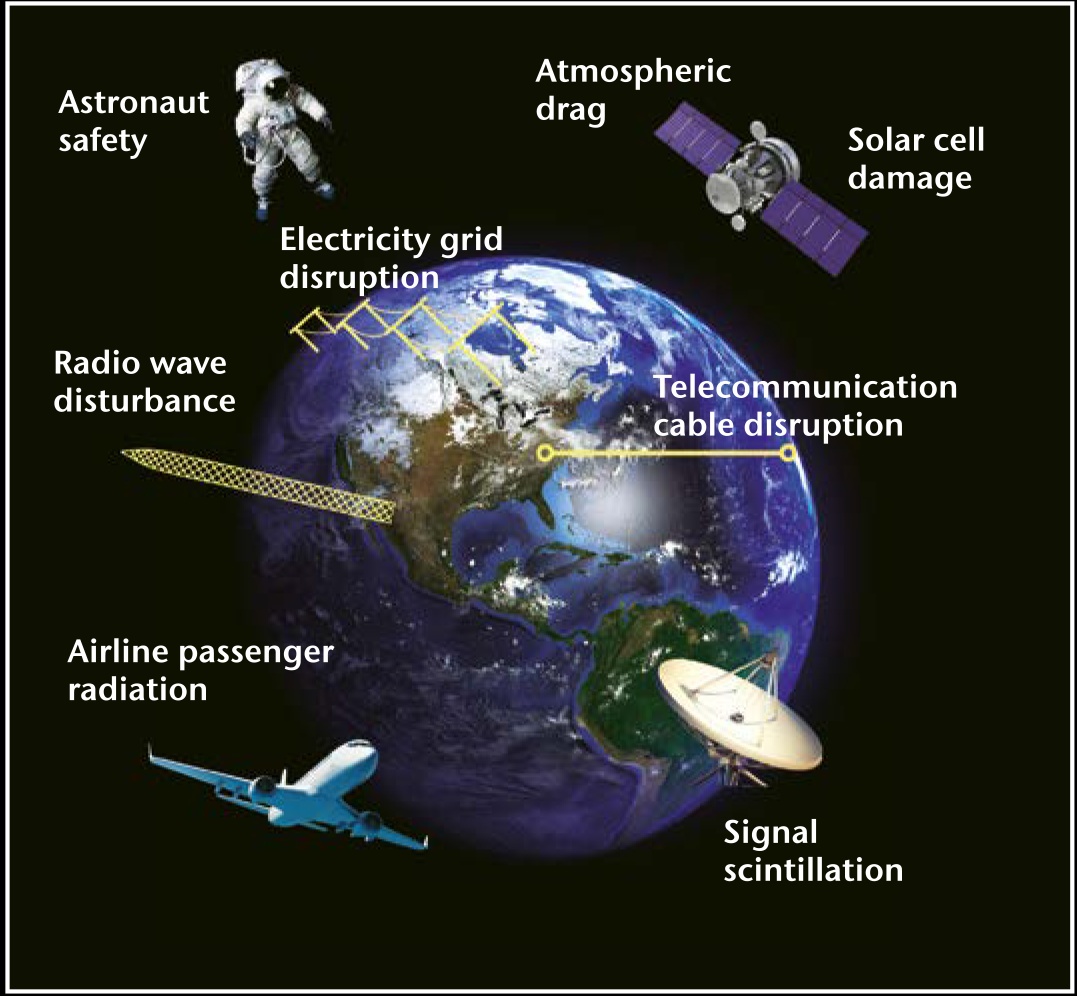Space weather impacts
Low level space weather events occur on a regular basis. So what impacts can they have on our daily lives?
Thankfully, severe space weather events are rare but when they do occur the impacts to our national infrastructure are extremely significant. For this reason, the Government has listed severe space weather as one of the highest priority natural hazards in the UK National Risk Register.
Main impacts at a glance
The major impacts of a severe space weather event can be divided into two areas - impacts on technology on Earth and threats to equipment and health in space and at high altitude. They include:
- Power grid outages
- Disruption to Global Navigation Satellite Systems (GNSS) / Global Positioning Satellites (GPS)
- High Frequency (HF) radio communications outages
- Satellite damage
- Increased radiation levels at high altitude
Why are we concerned now?
Space weather events have always occurred, but our modern reliance on technology driven systems makes us more susceptible to the impacts.
Different systems are exposed to varying levels of risk depending on technical design, location and the type of space weather that can affect them. Our challenge is to ensure new systems are designed with appropriate engineering solutions to minimize the risk posed by space weather.
Industries /infrastructures most at risk from severe space weather
- Energy
- Satellite
- Communications
- Aviation
- Marine
- Road transport
- Rail transport
Whilst certain impacts (such as degradation of GNSS / GPS) could affect us all, there are specific industries that are more exposed to the threat of space weather. We have been working closely with these industries to identify the threat, the extent of the impacts and to understand how forecasts can help them mitigate the risk.
We provide sector specific forecasts for authorities and organisations that prepare for and respond to risks such as space weather. Access to this service can be requested - Register for space weather
Industry impacts - summary information
| Industry | Impact | How forecasting can help |
|---|---|---|
| Energy |
Power blackouts |
Energy companies can use space weather services to help minimise the impact of geomagnetic storms, improve the design and modelling of future, more resilient, systems and increased monitoring of impacted systems. |
| Satellite | Damage to satellites Impacts on performance |
Satellite operators can use space weather forecasts to advise of potential degradation or failures in the services they provide. |
| Communications | Loss of long distance radio communication |
Advance notice of heightened solar activity can help flag the risk of blackouts. |
| Aviation |
Disruption to HF comms and high latitude routes |
Advance notice of space weather events is critical to rerouting of high latitude flights, and to alert aircraft in flight of possible loss of communications. |
| Marine | Disruption to critical navigation systems | Mariners can benefit from space weather forecasts to advise of potential degradation or failures in the GNSS service. |
| Road transport | Disruption of GNSS | Space weather forecasts help road users understand when Sat Navs may be unreliable. |
| Rail transport | Disruption of GNSS | Space weather forecasts help rail network operators understand when rail systems may be at risk. |



